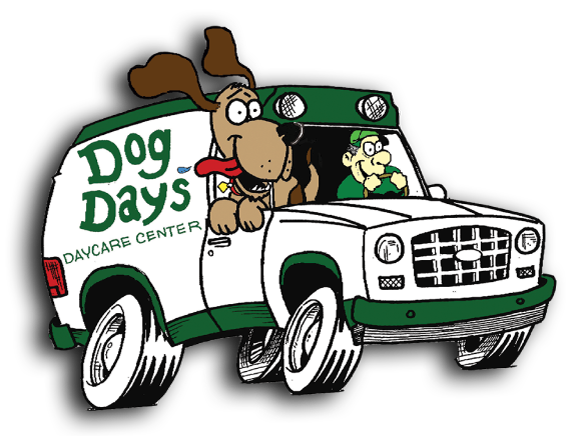We would like to announce and invite you to our K9 Influenza Vaccine Clinic to be held on March 24th (1st of two shots) and April 14th (2nd booster), sponsored by Dog Days Daycare and Dr. Joseph Martins of Belle Mead Animal Hospital.
A brief overview of the importance of this vaccine can be found below.
Where
Dog Days Daycare Center in the Ruff House (back building)
When
Round One: Saturday, March 24th from 10am-12pm
Round Two: Saturday, April 14th from 10am-12pm
This is vaccine is only effective if given in two parts. Just the initial vaccine is not sufficient and must be followed up with the second booster; then annually thereafter.
How to sign up
Contact Dog Days Daycare Center by phone, email, or in person to sign up for the clinic. There will not be specific appointments. Just bring your dog(s) between 10 am and 12 pm, much like you do for the free rabies clinic in January.
Phone: 908-431-0100
Email: service@dogdaysdaycare.org
Payment
Each round of the vaccine will be $38, to be paid separately at each visit.
Cash or check only please.
Checks should be made payable to Belle Mead Animal Hospital.
Hope to see you there!
Information on K9 Flu Bivalent Vaccine
From Dr. Martins at Belle Mead Animal Hospital
The K9 Flu (Influenza) Bivalent Vaccine is the safest vaccine and can be used on puppies as young as 9 weeks of age. The first vaccine, called the K9 Flu 1 of 1, takes 2 weeks to give 42% protection. Then when boostered 2-4 weeks later with the K9 Flu 2 0f 2, it will give 92% protection. That’s phenomenal. If the human flu vaccine was that effective, everyone would get vaccinated. As long as pet parents follow up with one booster per year, their dogs and their family and friends’ dogs will be protected.
If a dog was vaccinated in the past or is only vaccinated with the older monovalent H3N8 flu vaccine, they should upgrade to the Bivalent. Also, if the pet parent has lapsed in yearly protections, then the series of 2 boosters 3 weeks apart should be restarted.
Remember, K9 Flu in dogs is not seasonal. It’s hiding and lurking in dogs and objects like floors and clothes all year long.
K9 Bivalent Flu is a core vaccine for all dogs but especially dogs who go to daycare, groomers, and have access to anywhere other dogs have been. There are 2 dog flu strains out there. The original horse flu mutation H3N8 Influenza A from 2004 that started in Florida, and the other strain H3N2 that we first found in 2015 in Chicago. It is circulating in the Tri-State area, and all over the states, because some dogs can carry and shed virus for 3 months without any symptoms and microscopically infecting many areas and dogs without anyone knowing for a while. Dogs can spread virus around by just barking. They also spread virus via nasal secretions and, of course, sneezing and coughing.
K9 flu is real. It’s here circulating and it’s no joke. It’s under the radar until your pet gets severely ill. It’s not treated as easily as infectious tracheobronchitis which can be many different organisms, including what people like to just mistakenly call kennel cough. Co-infections are common and complicate diagnosis and treatment.
If your dog starts sneezing, coughing, fever, and it’s caused by the flu virus, an oral antibiotic from your vet won’t be enough. Your dog will not be able to merely go to your regular vet for proper treatment. If you want you best chance to get through this, then your pet will need to be transferred to a 24-hour emergency hospital for intense and expensive isolation and intravenous therapies. Dogs are contagious for 3 weeks. Pneumonia is a common sequela and 10% do not survive even when the owners believe they’ve caught it early and have pet insurance or all the money in the world to spend on treatment.
There is no good reason not to vaccinate your dog for K9 flu who goes to other dog frequented areas. Another important reason to vaccinate as many of your dogs as possible is that vaccinated dogs who are unknowingly exposed to invisible virus can only shed virus for 3 days versus 3 months. This will offer herd health or herd immunity, protecting more dogs in a family or community. Imagine if you have one young active dog that goes everywhere and one older dog who stays home. Both dogs need to be protected even though one is more exposed. Protecting one dog is better than neither, but I would caution owners about playing favorites and Murphy’s Law.
It’s just a matter of time before a dog who is exposed to public settings comes home with a respiratory infection.
1. Call your vet immediately if your dog starts coughing multiple times per day and night, especially if your dog has been anywhere public in the past 2 weeks (groomer, daycare, pet store, park, veterinary hospital, around friends’ dogs, etc.).
Let them know before walking into the vet – BMAH can come to your car to see your pet and minimize spreading infections to others.
2. Starting antibiotics on day 1 or 2 for these infectious respiratory complexes can minimize cost and complications like pneumonia and hospitalization at a 24-hour emergency hospital.
3. If your dog has a respiratory infection brewing, or is being treated for one, keep them home for 3 weeks while they are contagious. Tell your groomer, kennel, trainer, and veterinarian over the phone what is going on so that we can prevent other dogs from getting sick.
This is a personal responsibility of every pet parent to not only protect their dog, but to not knowingly infect other dogs.

